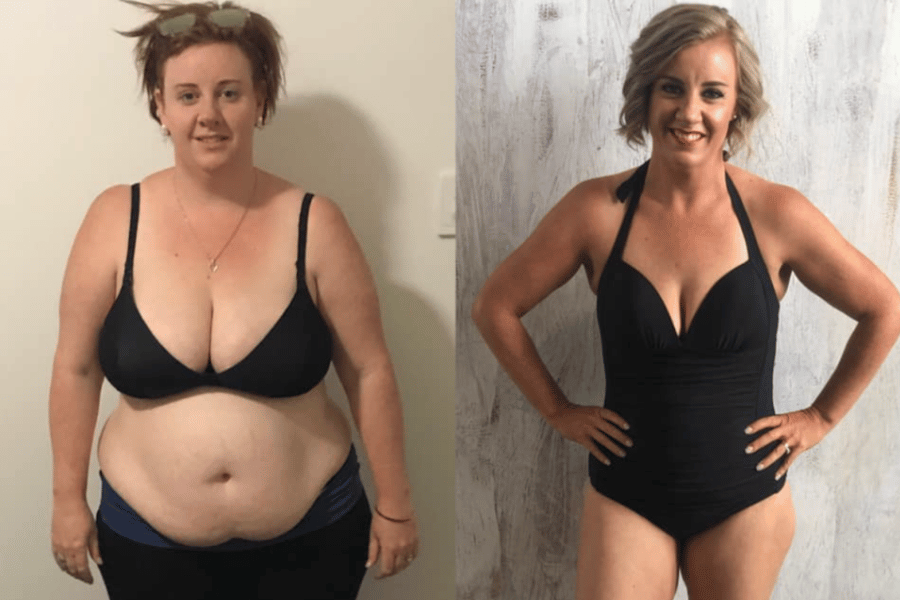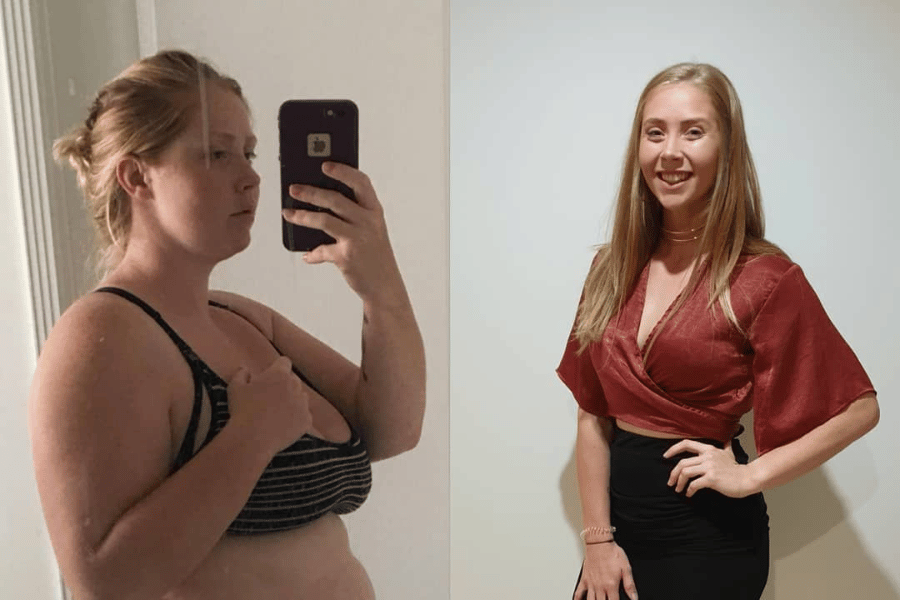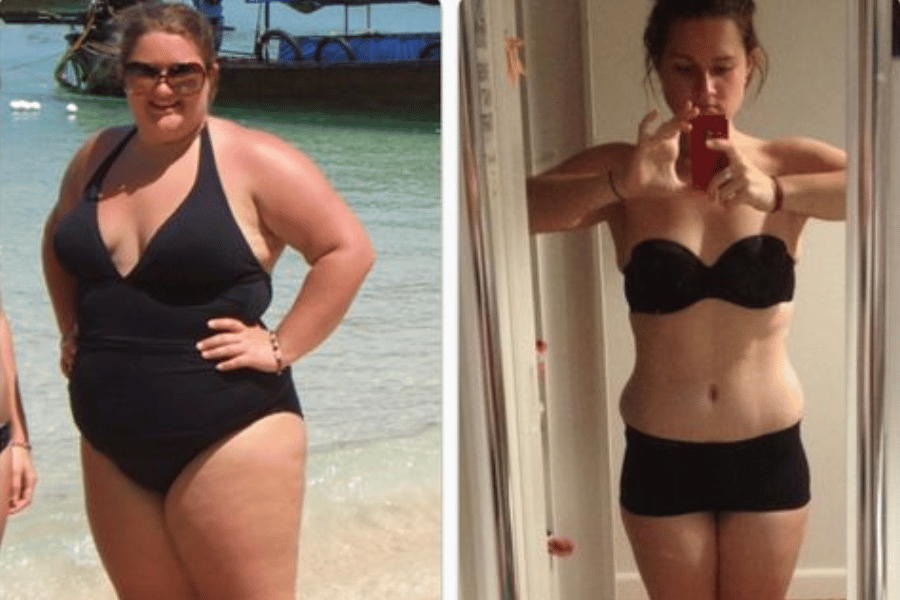When it comes to understanding how to lose weight fast, it’s essential to grasp the basic principles of weight loss. Essentially, it involves burning more calories than you consume. This can be achieved through a combination of diet, exercise, and lifestyle adjustments. However, while the concept seems straightforward, the execution requires discipline and a well-thought-out plan.
Rapid weight loss can be appealing, but it’s crucial to approach it with health considerations in mind. Setting realistic and safe weight loss goals is important. The Centers for Disease Control and Prevention (CDC) suggests that a healthy weight loss rate is 1 to 2 pounds per week. Losing weight too quickly can lead to health issues like nutrient deficiencies, muscle loss, and gallstones.
It’s also essential to consult with a healthcare provider before starting any rapid weight loss plan, especially for individuals with underlying health conditions. A tailored approach that suits individual health needs and lifestyle is key to effective and sustainable weight loss.
In this article, we will explore nutritional strategies, exercise routines, lifestyle changes, advanced techniques, and ways to overcome common pitfalls in the journey of rapid weight loss. Our goal is to provide comprehensive insights on how to lose weight fast while maintaining health and wellness.

lose weight fast
Nutritional Strategies for Faster Weight Loss
Importance of a Balanced Diet
In the quest for how to lose weight fast, the importance of a balanced diet cannot be overstated. A well-planned diet not only aids in rapid weight loss but also ensures that your body receives the essential nutrients it needs. It’s about finding the right balance between calorie intake and nutritional value.
- Portion Control: Consuming smaller portions can significantly reduce calorie intake while preventing overeating.
- Macro Balance: A balance of proteins, fats, and carbohydrates is crucial. Proteins are especially important as they can increase satiety and reduce overall calorie intake.
- Hydration: Drinking plenty of water aids in metabolism and might also help in reducing unnecessary calorie intake often confused with hunger.
Key Foods and Diets That Aid Rapid Weight Loss
Certain foods and diet plans can be particularly effective for rapid weight loss:
- High-Protein Foods: Including lean meats, fish, eggs, dairy, legumes, and nuts. These help build muscle and keep you feeling full longer.
- Fiber-Rich Foods: Such as fruits, vegetables, and whole grains. Fiber aids digestion and adds to the feeling of fullness.
- Healthy Fats: Sources like avocados, olive oil, and nuts are essential for nutrient absorption and can aid satiety.
- Reduced Sugar and Refined Carbs: Limiting foods high in sugar and refined carbohydrates can reduce calorie intake and prevent blood sugar spikes.
Popular diets that focus on these principles include the Mediterranean diet, low-carb diets, and paleo diets. However, it’s important to choose a diet plan that fits your lifestyle and is sustainable in the long term.
A balanced diet rich in proteins, fibers, and healthy fats, along with mindful eating practices, can significantly accelerate the weight loss process. In the next section, we’ll delve into exercise routines that enhance this process.

lose weight fast
Exercise Routines to Enhance Weight Loss
Effective Exercise Types for Burning Fat
When considering how to lose weight fast, exercise is a crucial component of the equation. Here are some effective exercise types that can help you burn fat rapidly:
- Aerobic Exercise: Activities like running, brisk walking, swimming, and cycling elevate your heart rate and increase calorie burn. Aim for at least 150 minutes of moderate-intensity aerobic activity per week.
- Strength Training: Building muscle through strength training exercises, such as weightlifting, boosts your basal metabolic rate (BMR). Muscles burn more calories at rest than fat.
- High-Intensity Interval Training (HIIT): HIIT involves short bursts of intense activity followed by brief periods of rest or low-intensity exercise. It’s highly effective for burning calories and can continue to boost your metabolism post-workout.
Tailoring Your Workout Plan for Optimal Results
To get the best results from your exercise routine:
- Set Clear Goals: Define specific, achievable goals for your weight loss and fitness journey. Having clear objectives can help you stay motivated.
- Consistency is Key: Regular, consistent exercise is more effective than sporadic intense workouts. Create a workout schedule that you can realistically follow.
- Mix It Up: Variety in your workouts not only prevents boredom but also challenges different muscle groups, leading to better results.
- Listen to Your Body: Pay attention to your body’s signals. Overtraining can lead to injuries and burnout, so it’s important to allow for adequate rest and recovery.
- Consult a Fitness Professional: If you’re new to exercise or have specific fitness goals, consider working with a personal trainer or fitness expert who can create a customized plan for you.
Exercise complements your dietary efforts in achieving rapid weight loss. By incorporating both cardiovascular and strength training exercises into your routine and staying consistent, you can maximize calorie burn and achieve your weight loss goals more efficiently.
Lifestyle Changes for Sustainable Weight Loss
Role of Sleep and Stress Management
While diet and exercise are pivotal in the pursuit of how to lose weight fast, lifestyle factors should not be overlooked. Two key aspects are sleep and stress management:
- Sleep: Poor sleep can disrupt hormonal balance, leading to increased hunger and cravings, particularly for high-calorie, high-sugar foods. Aim for 7-9 hours of quality sleep per night to support weight loss.
- Stress Management: High stress levels can trigger emotional eating and hinder weight loss efforts. Practices like meditation, yoga, or deep breathing exercises can help manage stress and emotional eating.
Building Habits That Support Weight Loss
Sustainable weight loss often involves adopting healthy habits that become a natural part of your daily life:
- Mindful Eating: Paying attention to what and how you eat can prevent overeating. Avoid distractions like screens while eating, savor your food, and listen to hunger cues.
- Meal Planning: Planning meals and snacks in advance can help you make healthier choices and avoid impulsive, high-calorie options.
- Hydration: Drinking enough water can help control hunger and support metabolism. Sometimes, thirst can be mistaken for hunger.
- Social Support: Sharing your weight loss journey with friends, family, or a support group can provide motivation and accountability.
- Tracking Progress: Keeping a journal of your food intake, exercise, and emotions can help identify patterns and areas for improvement.
By incorporating these lifestyle changes alongside your dietary and exercise efforts, you can create a holistic approach to weight loss that is both effective and sustainable.

lose weight fast
Advanced Techniques and Tips
Incorporating Intermittent Fasting
Intermittent fasting is an advanced technique gaining popularity in the realm of rapid weight loss. It involves cycling between periods of eating and fasting. Here are some common methods:
- 16/8 Method: This involves fasting for 16 hours a day and restricting eating to an 8-hour window. It can be as simple as skipping breakfast.
- 5:2 Method: In this approach, you consume a regular diet for five days of the week and limit calorie intake to around 500-600 calories on the other two non-consecutive days.
Intermittent fasting can help control calorie intake and may have additional health benefits, such as improved insulin sensitivity and cellular repair processes.
Supplements and Their Impact on Weight Loss
While a balanced diet should ideally provide all necessary nutrients, some supplements are believed to aid in weight loss:
- Green Tea Extract: Contains compounds like EGCG that may boost metabolism and aid in fat burning.
- Protein Supplements: Protein shakes or bars can help increase protein intake, which can promote feelings of fullness and muscle preservation.
- Glucomannan: A natural dietary fiber that can absorb water and help control appetite.
- Conjugated Linoleic Acid (CLA): Some studies suggest that CLA may help reduce body fat.
It’s essential to approach supplements with caution and consult with a healthcare provider before incorporating them into your weight loss plan. Supplements are not a substitute for a balanced diet and exercise.
Common Pitfalls and How to Avoid Them
Identifying and Overcoming Weight Loss Plateaus
In the pursuit of how to lose weight fast, it’s not uncommon to encounter weight loss plateaus. These are phases where your weight remains stagnant despite your efforts. Plateaus can be frustrating, but they are manageable:
- Review Your Diet: Reassess your calorie intake and ensure you’re not unintentionally consuming excess calories. Keep a food journal to track your meals accurately.
- Change Your Exercise Routine: Your body can adapt to your workout routine over time. Introduce variety by trying new exercises or increasing the intensity and duration of your workouts.
- Manage Stress: High stress levels can hinder weight loss. Prioritize stress management techniques like meditation or yoga.
- Get Sufficient Sleep: Lack of sleep can disrupt hormones related to appetite and metabolism. Aim for consistent and quality sleep.
Dealing with Cravings and Maintaining Motivation
Cravings for unhealthy foods can be a significant challenge in rapid weight loss. Here’s how to handle them:
- Mindful Eating: Pay attention to your cravings and try to identify whether they’re due to genuine hunger or emotional triggers. Distract yourself with a non-food-related activity if it’s emotional.
- Healthy Alternatives: Keep healthy snacks on hand to satisfy cravings without derailing your progress.
- Stay Hydrated: Sometimes, thirst can be mistaken for hunger. Drink water before reaching for a snack.
- Stay Motivated: Revisit your initial weight loss goals and remind yourself of why you started this journey. Consider involving a friend or a support group for motivation.
By addressing these common pitfalls, you can stay on track and continue making progress in your weight loss journey.
FAQs
Q1: What Are the Best Foods to Eat for Quick Weight Loss?
When aiming for quick weight loss, focus on nutrient-rich foods that promote fat loss:
- Lean Proteins: Include sources like chicken, turkey, fish, tofu, and legumes. Protein increases feelings of fullness and supports muscle preservation.
- Fruits and Vegetables: High-fiber, low-calorie options like berries, leafy greens, and broccoli are excellent choices. They provide essential nutrients and keep you full.
- Whole Grains: Opt for whole grains like quinoa, brown rice, and oats over refined grains. They provide sustained energy and fiber.
- Healthy Fats: Incorporate sources like avocados, olive oil, and nuts in moderation. Healthy fats support nutrient absorption and satiety.
Q2: How Can I Effectively Combine Diet and Exercise for Faster Results?
To synchronize diet and exercise for quicker results:
- Plan Your Meals: Coordinate your meals with your workout schedule. Eat a balanced meal with a mix of carbs and protein 1-2 hours before exercising.
- Post-Workout Nutrition: After exercise, consume a protein-rich snack or meal to support muscle recovery.
- Hydration: Stay hydrated throughout the day, but avoid heavy meals right before a workout to prevent discomfort.
- Adjust Calorie Intake: As you increase exercise intensity, adjust your calorie intake to meet your energy needs.
Q3: Are There Any Quick Fixes or Shortcuts to Losing Weight Rapidly?
Quick fixes and shortcuts often promise rapid weight loss but may not be sustainable or healthy. Be cautious of weight loss supplements and fad diets. While some supplements and diets may aid in weight loss, they should be approached with professional guidance and not as a sole solution. Sustainable weight loss involves a balanced diet, exercise, and lifestyle changes.
Q4: How Can I Stay Motivated During My Weight Loss Journey?
Maintaining motivation can be challenging, but these tips can help:
- Set Clear Goals: Define specific, achievable goals and remind yourself of them regularly.
- Celebrate Small Wins: Acknowledge and celebrate your achievements, no matter how minor they may seem.
- Find a Support System: Share your journey with friends, family, or a support group for accountability and encouragement.
- Track Your Progress: Keeping a journal of your meals, workouts, and emotions can help you identify patterns and stay on track.
- Visualize Success: Imagine the benefits of reaching your weight loss goals and use that as motivation during challenging times.